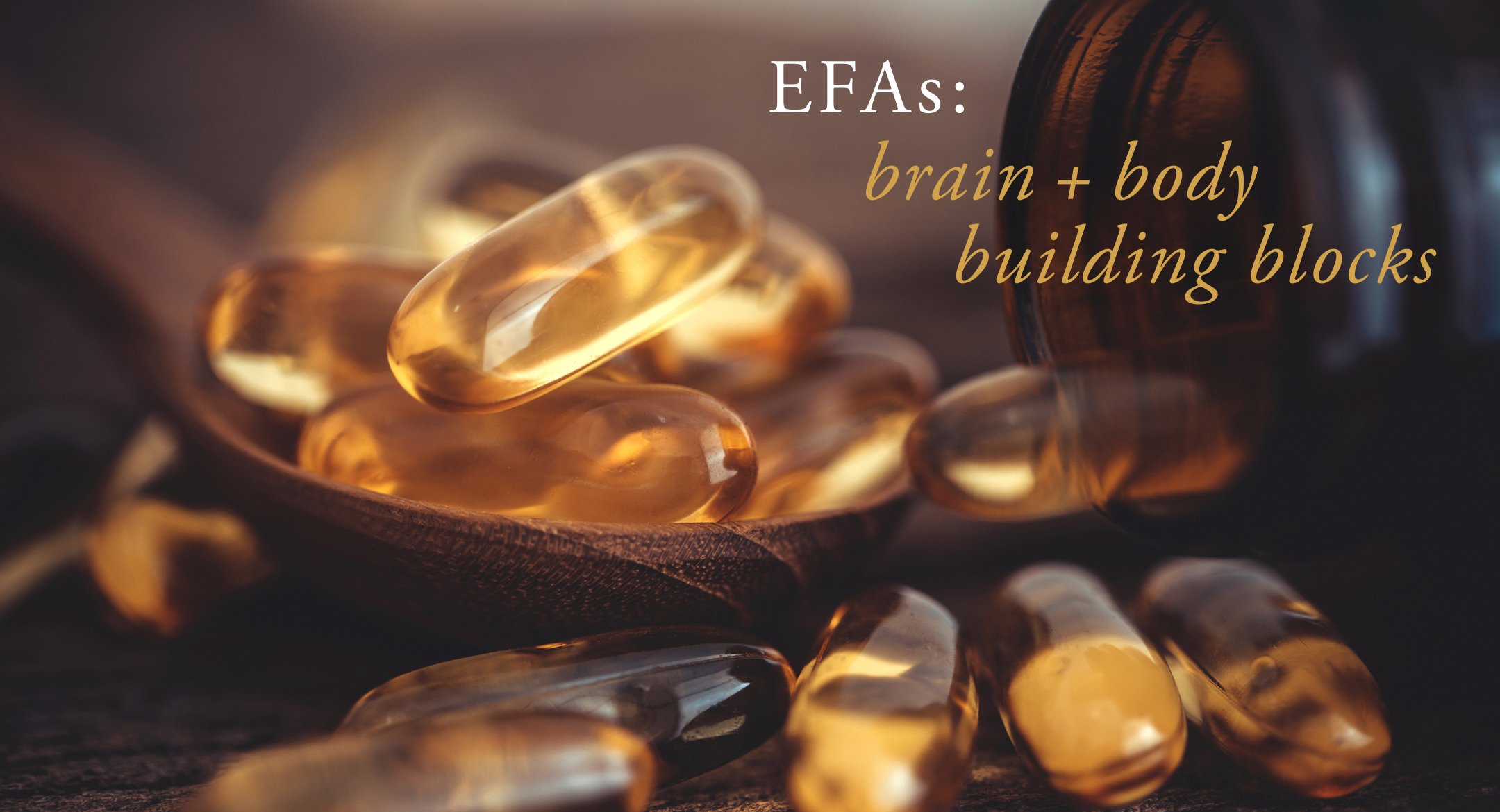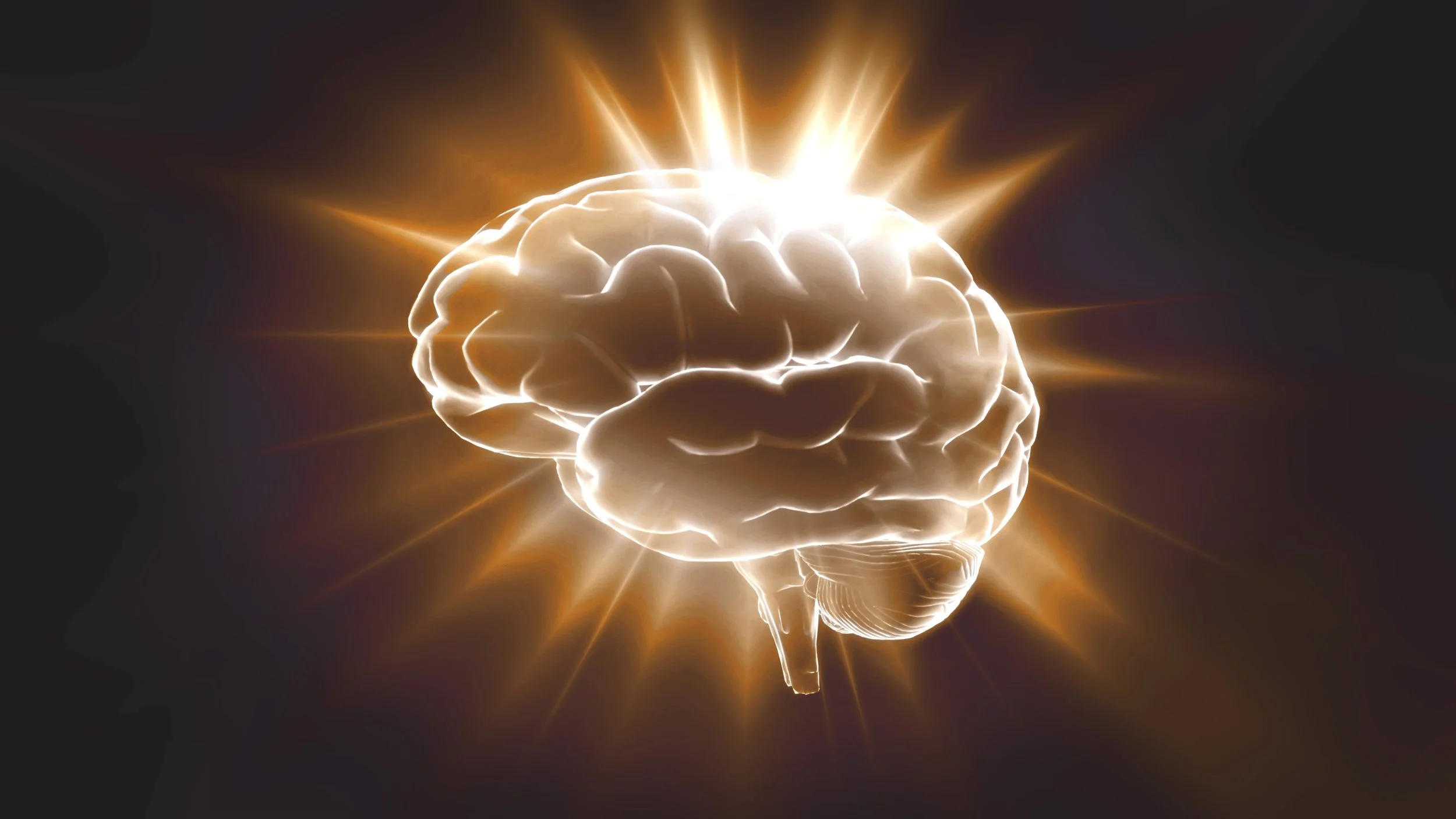Why You Need to Supplement Essential Fatty Acids
By Melanie Christner, CNP
Published January 13, 2015
GreenMedInfo excerpt
We'll Cover The Following Topics in This Article
Facts to know about fatty acids
What they are
What happens when you are deficient
What do fatty acids do in the body?
How mental health is affected by fatty acids
Special note on DHA and EPA
Facts to Know About Fatty Acids
Omega-3 fats come in two (2) forms:
1. Ready-for-brain-use form, found only in fish
2. A cruder form, found in foods like flaxseeds and other seeds & nuts
The vegetarian form of omega-3 (ALA) has to be acted upon in the body by enzymes, which many of us are deficient in and that decline with aging
Eating cold-water fatty fish 2-3 times a week, and supplementing with fish oil supplements is the most efficient way to get enough omega-3 fatty acids, particularly the anti-inflammatory (EPA) and the brain helping (DHA) fatty acids
Fish oil supplements need to be eaten with a meal that includes fat for good absorption
Multivitamins DO NOT typically contain essential fatty acids
The majority of omega's consumed in the standard American diet are omega-6's
Some scholars believe that our ancestors ate close to a 1:1 ratio of omega-3 fatty acids to omega-6 fatty acids
Fats found in processed foods, heated vegetable oil, and hydrogenated fats can make the membranes of your nerve cells rigid and unresponsive
Rigid and unresponsive cell membranes lead to malfunctioning neurons, inflammation and degeneration ... and all the symptoms that go along
What They Are
Fatty acids are the building blocks of the fat that is in our bodies and in the food we eat. During digestion, the body breaks down fats into fatty acids, which can then be absorbed into the blood. Fatty acid molecules are usually joined together in groups of three, forming a molecule called a triglyceride. Triglycerides are also made in our bodies from the carbohydrates that we eat.
Fats are a considerable part of EVERY one of our 100 trillion+ cells. The quality of the fats you eat = the quality of your cells.
Fatty acids have many important functions in the body, including energy storage. If glucose (a type of sugar) isn't available for energy, the body uses fatty acids to fuel the cells instead. Burning fat for energy is actually preferable and more sustainable for health. Essential fatty acids means that the body cannot produce the fatty acid itself, it has to be consumed in food. Strictly speaking, there are two essential fatty acids:
LA ~ Linolenic acid (Omega-6)
ALA ~ Alpha Linolenic acid (Omega-3)
But because conversion rates can be poor, there are also conditionally essential fatty acids:
DHA ~ Docosahexaenoic acid (Omega 3 that can be a derivative of ALA. The fatty acid that best serves brain health)
EPA ~ Eicosapentaenoic acid (Omega 3 that can also be a derivative of ALA and a good anti-inflammatory)
AA ~ Arachidonic acid (an Omega-6 fatty acid that is also good for membrane flexibility and permeability, can be derived from LA)
GLA ~ Gamma linolenic acid (an Omega-6 fatty acid, the human body produces GLA from LA. Food sources are black currant seed oil, evening primrose oil, borage and hemp seed oil)
What Happens When You Are Deficient?
Today healthy fatty acid deficiency is epidemic.
Deficiency leads to:
Musculoskeletal issues
Endocrine issues
Cardiovascular issues
Immune issues
Allergies and asthma
Depression and other mood disorders
What Do Fatty Acids Do In The Body?
Provide a source of energy (fats are the longer lasting fuel, the "logs" with carbs being the "kindling")
Are important in the makeup of cell membranes (lipids, the cholesterol, the fatty acid tails)
Are necessary for healthy liver function: building healthy cholesterol and bile
Are required for the absorption of fat soluble vitamins: A, D, E, K
Are required for the adequate use of proteins
Serve as a protective lining for the organs of the body
Play a role in slowing the absorption of food for proper energy regulation
Are imperative to managing the inflammation process
MAKE FOOD TASTE GOOD!
How Mental Health is Affected By Fatty Acids
Diets high in good fat support your brain function. The brain is made primarily of fatty acids, or phospholipids (the simplest form of fats). Essential fatty acids (we'll call them EFA's for short) provide proper fluidity and flexibility in the neuron cell's membrane. They also provide structure and a protective wall for the neuron. A healthy and flexible membrane allows for the correct nutrients to pass back and forth, and for the metabolic needs of the neuron to be taken care of. A healthy and flexible membrane also performs the function of good communication and synapses between neurons – critical for better brain function, mood, memory and general health.
But let's say you eat at restaurants regularly (especially fast food), or eat store bought foods on a weekly basis, like crackers, chips, cereals, margarine, doughnuts, or any other processed foods and oils, especially with hydrogenated or partially hydrogenated fats. Processed fats like Crisco, Pam, Better than Butter, and a whole lot of other margarine, shortenings, vegetable oils, spreads, (as well as processed fats as ingredients in other processed foods), are foreign to our human physiology. The unsaturated fatty acids that are contained in these seed and plant oils are unstable and easily damaged. When put through the high heat, high pressure, chemical extraction the fatty acids structures are chemically altered and become even more harmful. On top of this processing, many are hydrogenated to stay solid at room temperature. This process also involves high temperatures (248 – 410 degrees F) in the presence of metals like nickel and aluminum. Remnants of these toxic metals stay in the hydrogenated oils and add to the general toxic load on the body. Toxic metals have been linked to brain & mental conditions such as Alzheimer's, learning disabilities and dementia. The damaged fatty acids within these foods replace the healthful fatty acids in your cell membranes and cause the membrane to be rigid and inflexible. Cell to cell communication, fluidity, flexibility is hampered and neurons become less capable of their functions. This makes for an unhappy brain.
A Special Note on DHA and EPA
DHA and EPA can be derived from vegetarian ALA (including flax and walnut) but are not converted well in many people ... especially in cases of insulin resistance, so it is important to get them in their direct form via animal sources, like quality fish oil and cold water fish. Eating lots of foods with omega-6 fatty acids will also hinder the conversion of ALA to DHA and EPA.
Melanie Christner is a Certified Nutritional Therapy & GAPS Practitioner located in Vermont. As Founder of Honest Body, Melanie endeavors to help families navigate digestive therapy in a way that is understandable and well-supported.
Previous
Previous
Non-GMO vs. Organic: What is the difference?
Next
Next




